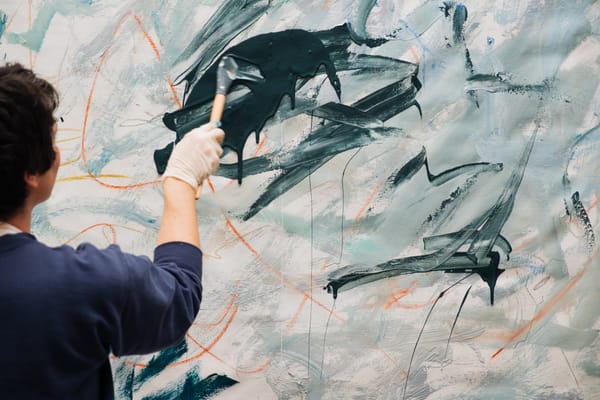🔎 In Focus: Xi Bago
Longtime coffee professional Xi Bago shares what their journey has been like in coffee as a career barista. We also chat about mental health and their dog food side hustle.
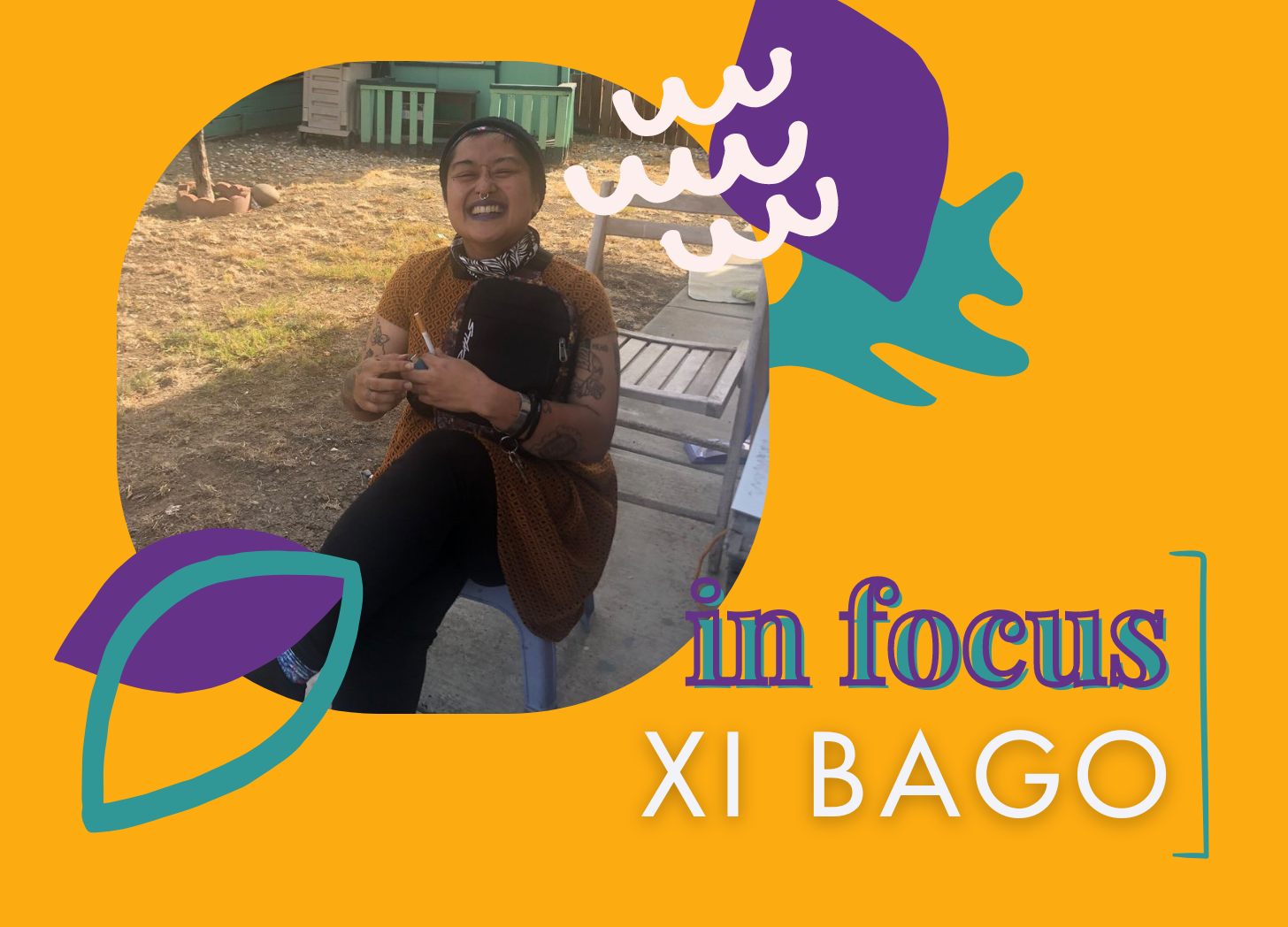
📝 Notes from Jenn:
It’s been a while since I’ve published an In Focus interview. I hope you enjoy this one!
🔏 Last week, paid subscribers received an essay on imposter syndrome in creative entrepreneurship.
🍩 What I ate/drank/snacked on: I visited Cassava’s wine bar by me for a date night. In addition to trying out the Prima Pavé’s non-alcoholic brut rosé, we snacked on ribs and a smoked salmon salad.



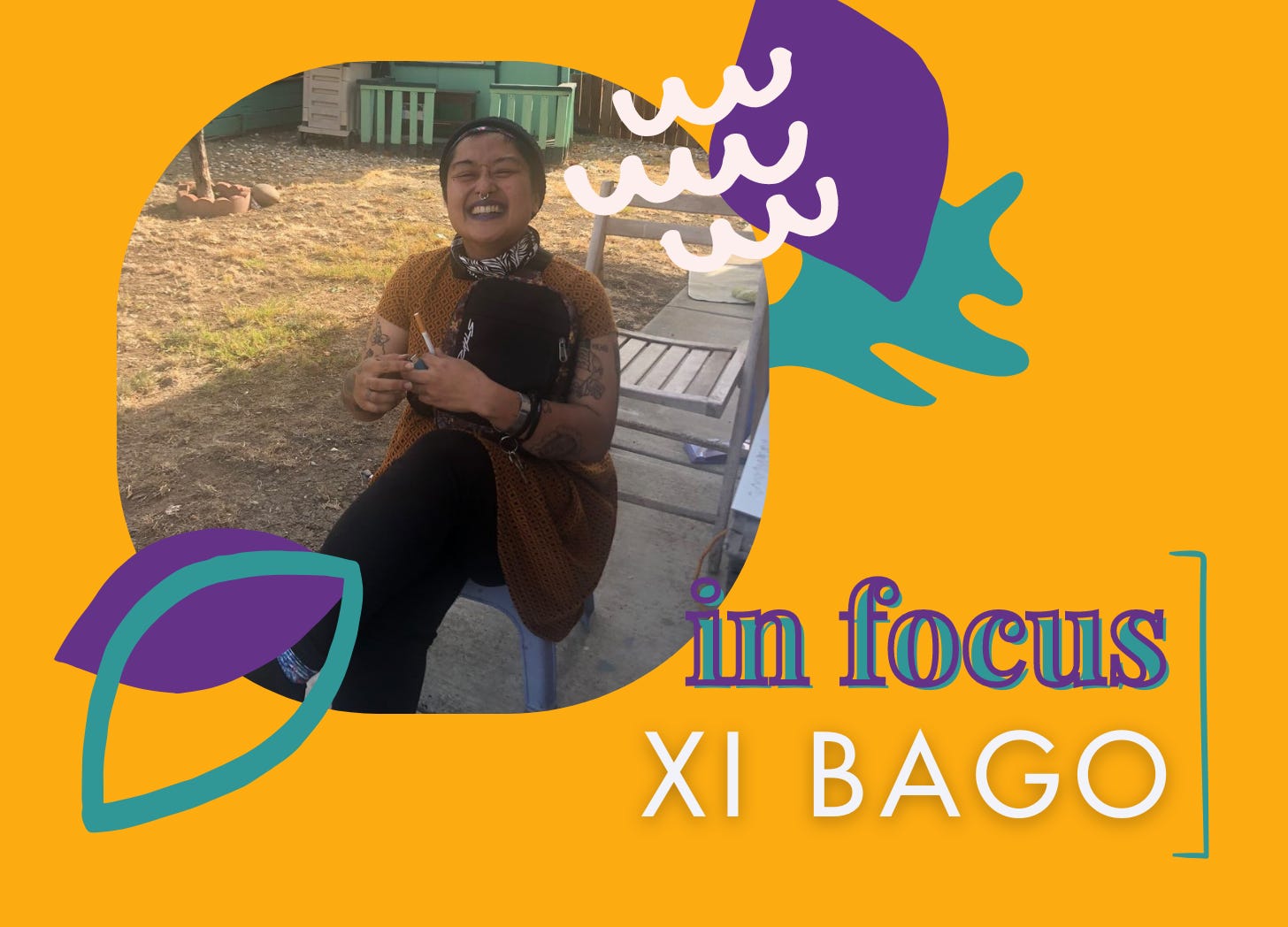
In Focus: Interview with barista Xi Bago
Baristas don’t get enough respect. Full stop.
Ironically, this interview occurred on the same day Soleil interviewed me for their column about tipping for your coffee. One of my pull quotes is: “You shouldn’t be opening a place with minimum-wage workers.” And in response to this, they said, opening a business is optional. You don’t have to open a cafe.
And this is what I’ve been reflecting on since then. It’s true, no one is forcing you to open a cafe with minimum-wage workers. So why does it keep happening?? I don’t have any answers except greed and capitalism. And probably a hefty dose of ego for those who open cafes without any prior coffee or retail experience.
For this In Focus interview, a series where I chat with creatives in and adjacent to coffee, I’m pleased to introduce you to Xi Bago. Xi has been in specialty coffee for 10 years, competed in roasters and latte art competitions, and is an all-around kind human. They’re based in Vallejo/Oakland (Bay Area, California) and carry their “career barista” profession with pride.
This interview has content warnings for mental health and religious and family trauma.

“Professionally, I’ve really just barista-ed, but there’s so much inside of that,” Xi says. “Somehow I survived the last 10 years without working for Blue Bottle.” For many reasons we’re about to get into, they’ve always worked for smaller companies.
Jenn: You said there’s a lot to go into “just” the barista part, because I think “just barista” is so minimizing of all the skills that one could have.
Xi Baga: It’s true. The expectations are so broad, I think, for what the job entails from person to person and company to company.
So always working with small companies, I’m very curious why you stuck with that, because I know there are definitely some pitfalls.
It was a little bit more like, get in where I fit in kind of thing. I've been spending a lot of time thinking about how much of my presentation is being brown and queer and non-binary, and how it takes a lot of work for me to scrub that off to make myself palatable to a bigger audience.
I walked in for an interview for dishwashing and he didn't even come out from behind the bar to me. He interviewed me while he was shifting. I was like, okay, that’s a little strange.
That’s disrespectful.
Yeah, it was. I didn't want to make it about a thing. But like, I think over the last 10 years, it's been clear the places that I'm welcome and the places that I'm tolerated at.
In 2015, Xi began working at Rasa Caffe in Berkeley and now considers owner Rasa Mott their brother. Even though they did “just barista work,” in this small company, it meant that they were in Rasa’s ear enough and was able to influence the cafe’s coffee program. “I really respect him. And so having him in my life has been really great.”
Around the same time they started feeling comfortable working there, they were also grappling with getting a bipolar disorder (BPD) diagnosis. They share, “I had a really tumultuous six or seven years, and it's only leveled out since COVID.” If you’re unfamiliar with mental health medication, it takes 6-8 weeks for them to kick in and for you to evaluate if they’re working or not. There’s a lot of trial and error in finding the right combination for you. But luckily, Xi did find one that’s been working. “I got on an injection called Abilify, and that keeps me from having to pop pills every day, which has been a massive stabilizer.”
What was it like to juggle a consulting job with getting an official diagnosis?
I was starting to show symptoms that were really freaking me out. I'd drop a donut and my hands would start to freeze up from lack of energy. Bipolar disorder—it's really interesting because it just fucks with your energy and that fucks with your mood, but first it's gonna try to attack your body. I kept being like, “It’s fine.” It wasn’t fine. My mood started to deteriorate and simple things would just set me off.
Navigating the healthcare system is difficult for anyone, but the diagnosis portion was especially challenging. “The actual process of getting diagnosed was very difficult in that, I know that Black and brown women experience health systems in the same way that Black and brown men experience the policing systems,” explains Xi. It took an entire year for them to be processed for disability benefits. Part of this process includes presenting disability documentation. They joke, “Luckily, unluckily, I have like six hospitals that I’ve been to that are all like, ‘Oh yeah.’”
To add to the difficulty was their family situation, the background of which they described as “very traditional.” Xi says, “The thing I have to say out loud now these days is that it was a cult. The Assemblies of God is a Pentecostal subset, and they’re extremists.”
One day, they were late for a shift because they had a fistfight with their father, and the bruise didn’t show up until three hours later. “Rasa's mother looked at me and was like, what happened to you? ‘Oh, I was late and Rasa had a meeting. He had to run out. It's fine, it's fine.’ And then she was like, ‘no, but what happened to your face?’” It’s been eight years since that day and it’s taken just as long for Xi to process and identify why it happened.
On coffee, its people, and a hot take
What is keeping you in this industry?
Everyone I meet. Like legit, there’s just less pretense with people. There’s a lot of “get in where you fit in,” and I really feel like I fit in more than I would somewhere else. I went to school for sociology and people ask me all the time, “Why aren't you doing that?” And I'm like, “But I am doing that. I literally sit on a corner and wait for people to come find this thing attractive.” If that isn't sociology, I don't know what is. You just get to see the city in a way that I think is really missed on a lot of people.
I love the interactions that I have with guests. I love feeling connected to a place. And I feel like America, the universe—our society is so starved for connection.
What’s your coffee hot take?
I’m all about iced espresso. If they want it, just give it to them. I know it's not the way you want to do it, but everybody does things they don't want to do sometimes. Is it really breaking your heart if it’s going to be over in like 20 minutes?
I think industry, in general, stresses me out.
Like the term? Or—
When I think of industrialism, I just think of capitalism. When I think of capitalism, it’s like, not everything is about growth. Not every growing thing is good.
Depression meals for two (you and your dog)
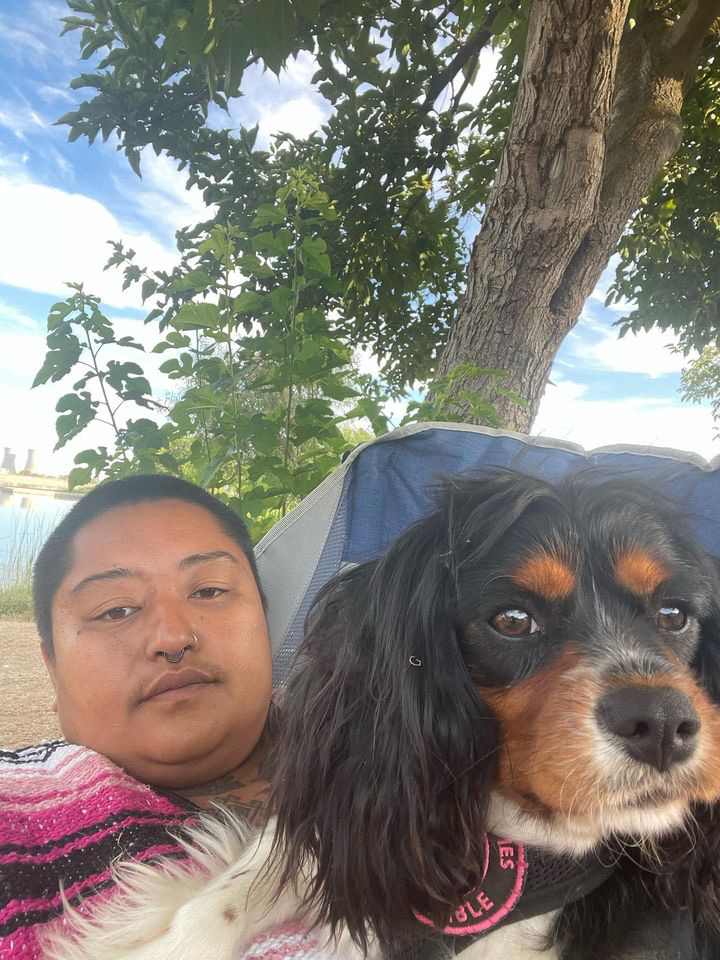

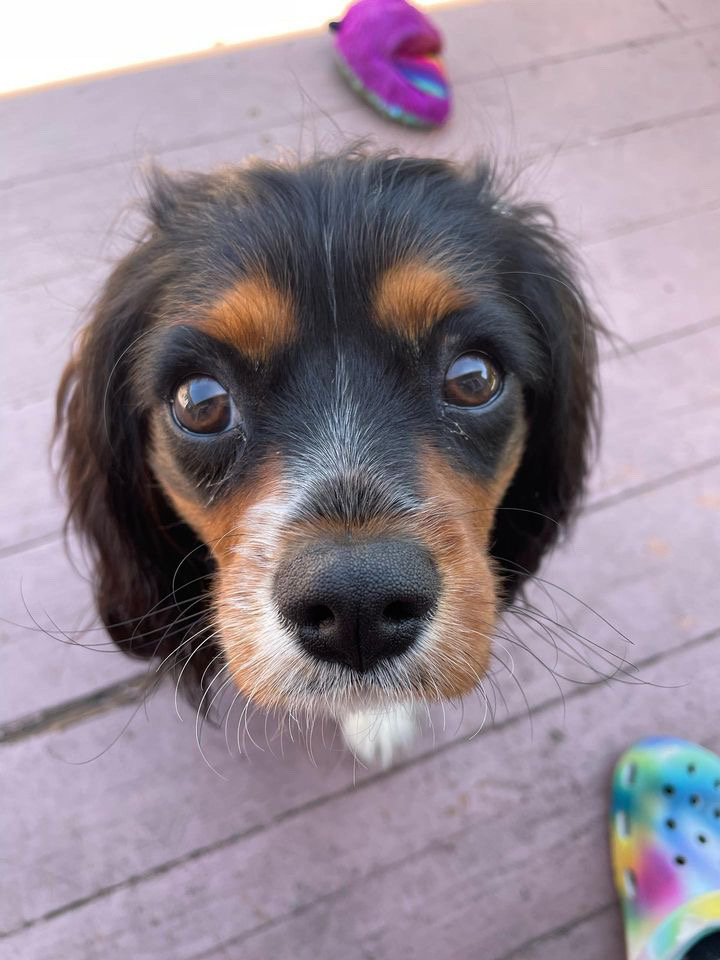
Besides doing all the coffee things, Xi has also started developing dog food recipes, sharing them on the Instagram page @dogdaze707. The basic idea behind it, they explain, is that, say you’re depressed and don’t know what to make. There are two of you eating, but only one of you can cook. They joke, “It’s a list of depression meals for both of you.” Xi has a service dog named Vinnie and another dog named Canaan.
“One of the recipes is based off an ancestral Filipino dish called ‘giniling,” which is stewed ground meat and veggies served over rice.” All the recipes are safe for dogs and also work to feed the humans serving them. They’ve made the recipes in batches and portioned them out to friends.

I’d love to get more into depression meals as a general topic, but that will be for another newsletter article. There was more to this interview, including “sacrificially” competing (a positive thing), a growing interest in spirituality, and training Vinnie as a service dog. Paid subscribers will be receiving part two of this interview next week. If you enjoyed learning about Xi Bago’s journey, give them a follow on Instagram @pichixpixie.

👀 interesting reads
- What a Heat Wave Does to Your Body [The New Yorker]: I’ve had heatstroke once in my life and it wasn’t so severe that I needed to go to a hospital. But the effects lingered for days.
Globally, instances of extreme humid heat have doubled in the past half century. In recent years, wet-bulb temperatures have touched the limits of human survivability in Pakistan, India, and Australia.
- Where do fonts come from? This one business, mostly [The Hustle]: I love a good font and have been exploring around
While boutique foundries still exist and do work for big companies, Monotype owns most major fonts: Arial, Helvetica, Gotham, Times New Roman. Its main competitors are Adobe Fonts and Google Fonts, the latter of which gives away fonts for free.
- The World Is Going Blind. Taiwan Offers a Warning, and a Cure [Wired]: I have myopia and my prescription is strong enough that I need custom-fitted contact lenses. It wasn't until reading this article that I learned that there was a genetic component to it.
The results of the Tian-Tian 120 program were immediate and impressive. After years of trending upwards, myopia prevalence among Taiwanese primary school children peaked in 2011 at 50 percent, and then started to come down.
- Why note-taking apps don’t make us smarter [The Verge]
Even if you can rescue your attention from the acid bath of the internet; even if you can gather the most interesting data and observations into the app of your choosing; even if you revisit that data from time to time — this will not be enough. It might not even be worth trying.



